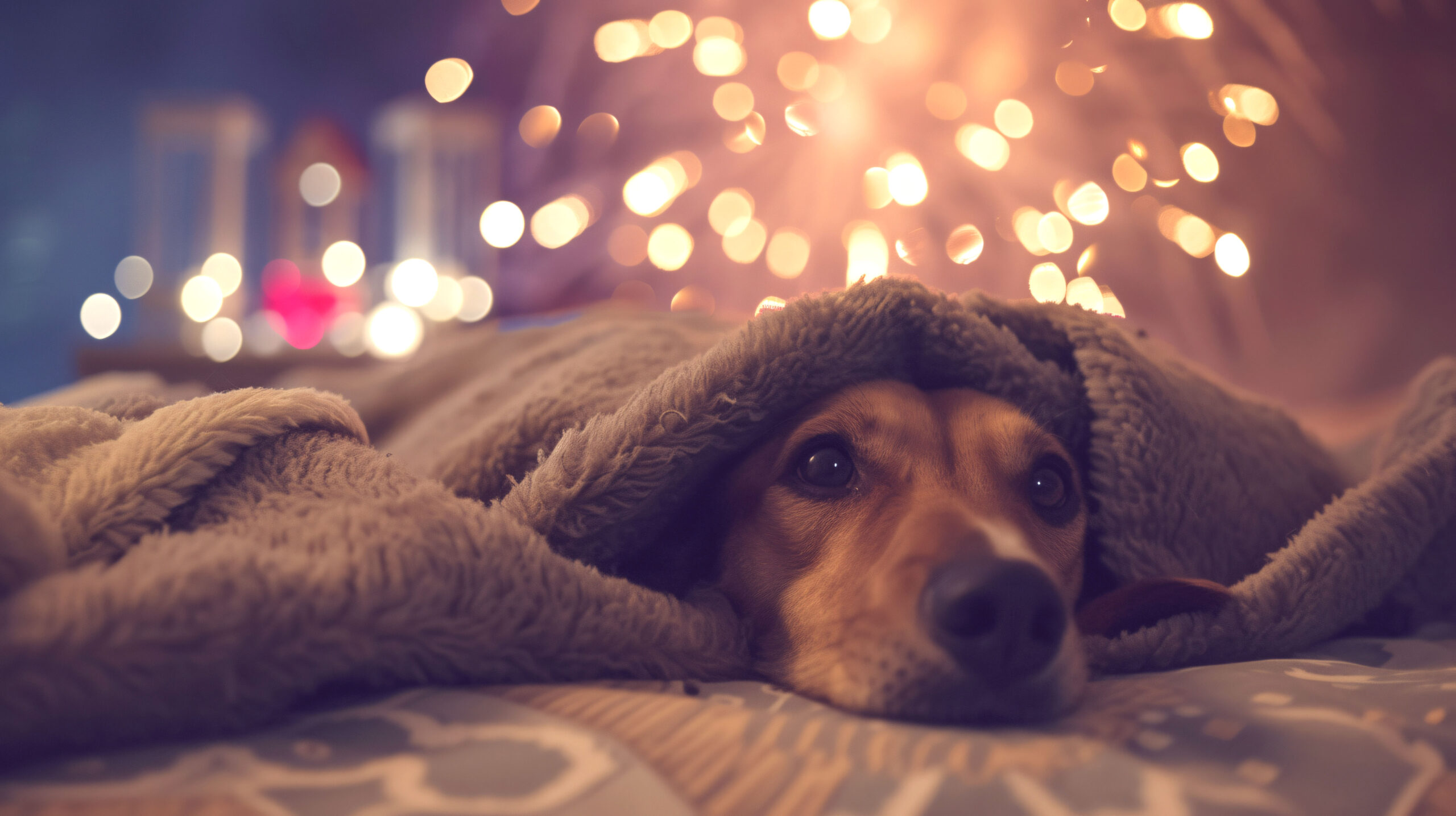Fireworks. Some people love them. Some people hate them. But how does your pet feel about them? Some animals are completely oblivious to loud, weird sounds coming from outside their window, but if your pet is particularly sensitive, shy, or a rescue, they may be startled, anxious, or terrified when they hear fireworks. As we head into fireworks season, there are a few things you can do to make things a little easier for your pet.
Anxiety Vest: These vests fit snugly around your pet and apply a gentle pressure that offers a sense of security during times of distress. If you don’t have a vest handy, a snugly-fitting T-shirt will also do the trick.
Anxiety Medication: To find out if this is appropriate for your pet, talk with your vet. Keep in mind that anxiety meds should not be shared with other pets, and be sure that you’re giving the correct dosage to eliminate the risk of overdose.
Strategize: When the fireworks start up, play some soft, calming music or white noise or run a fan to block out loud sounds and soothe your pet. You can also try moving your pet to an interior room with no windows, such as a basement or a large, walk-in closet. If a crate is your pet’s favorite haven, make sure they have access to it. Take your dog for a long walk before the show starts to settle their energy, and when you get home, bring out all their familiar, favorite treats and toys. If you have small animals in a hutch outside, bring the hutch to an indoor space for the night. Small animals can be calmed by preparing a cozy, comforting space with favorite toys, treats, a place to hide, or a digging box to work off nervous energy.
Leave Bella at Home: Being at a fireworks show is a good time for humans but not so much for dogs. Large crowds, a strange environment, and loud noises can potentially put a nervous dog (or any dog) into overwhelm, which can lead to a beloved friend breaking loose and running away. Keep your dog safe at home.
Be Comforting: Fireworks distress can take many forms, such as drooling, panting, pacing, shaking, or hiding. Witnessing high anxiety in a loved pet can cause you to become anxious, but remember that it doesn’t help to go into distress right along with them. A solid, comforting presence will go a long way in helping your pet feel secure. Keep your voice low and your movements slow and calm. If you have a bunny, pat them gently on the head or place your hand over their eyes to decrease visual overstimulation from flashing lights. Speak gently and reassure them that they are safe. If you have a cat, they will probably want to run off and hide, so give them time and space to rejoin the family in their own way.
Desensitization Training: This can help pets who are especially traumatized by fireworks. Look for recordings of fireworks and thunderstorms and play them at a soft volume at first, then gradually increase the volume as your pet acclimates. You can also give them a lasting treat, such as a Kong or a chew bone while playing a recording of the distressing noises. They can eventually associate the noise with a pleasurable experience, and this will lessen the negative emotional response.
No Snacking: Some pets don’t mind fireworks and may even find them a tasty snack…lit or unlit! If your pet grazed on your fireworks stash or did some snacking in the area where the fireworks were set off, watch for symptoms such as external/internal burns, brown gums or urine, gastrointestinal distress, jaundice, seizures, and shallow breathing.
Fireworks contain a wide range of chemicals and heavy metals, none of which does your pet any good. If you’re noticing signs of firework toxicity, call your vet immediately or head to your nearest emergency vet clinic because timing is crucial for a successful recovery. Prevention is key, so if your pet is outside with you, keep a close eye on their activity, and always pick up firework debris before you call it a night.
A little bit of time and effort will go a long way making fireworks season more pleasant for you and your pet!

